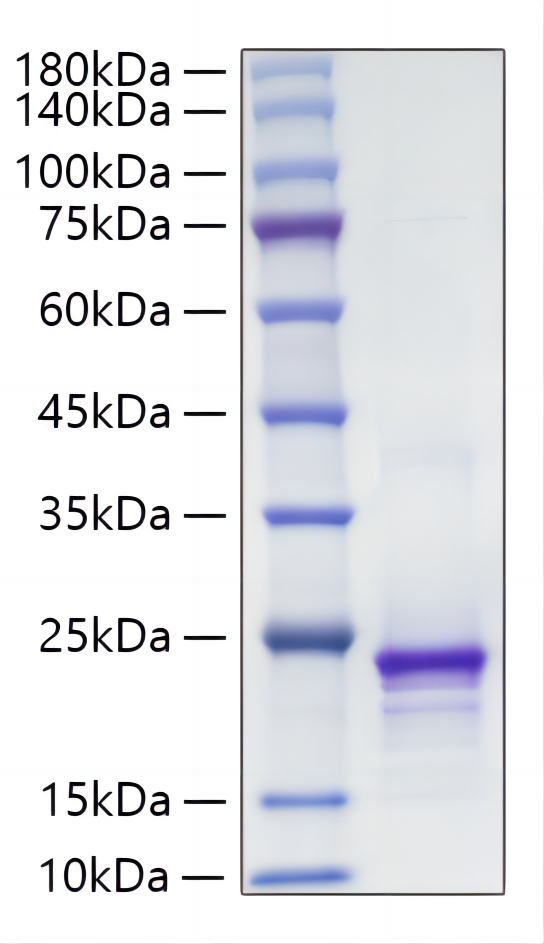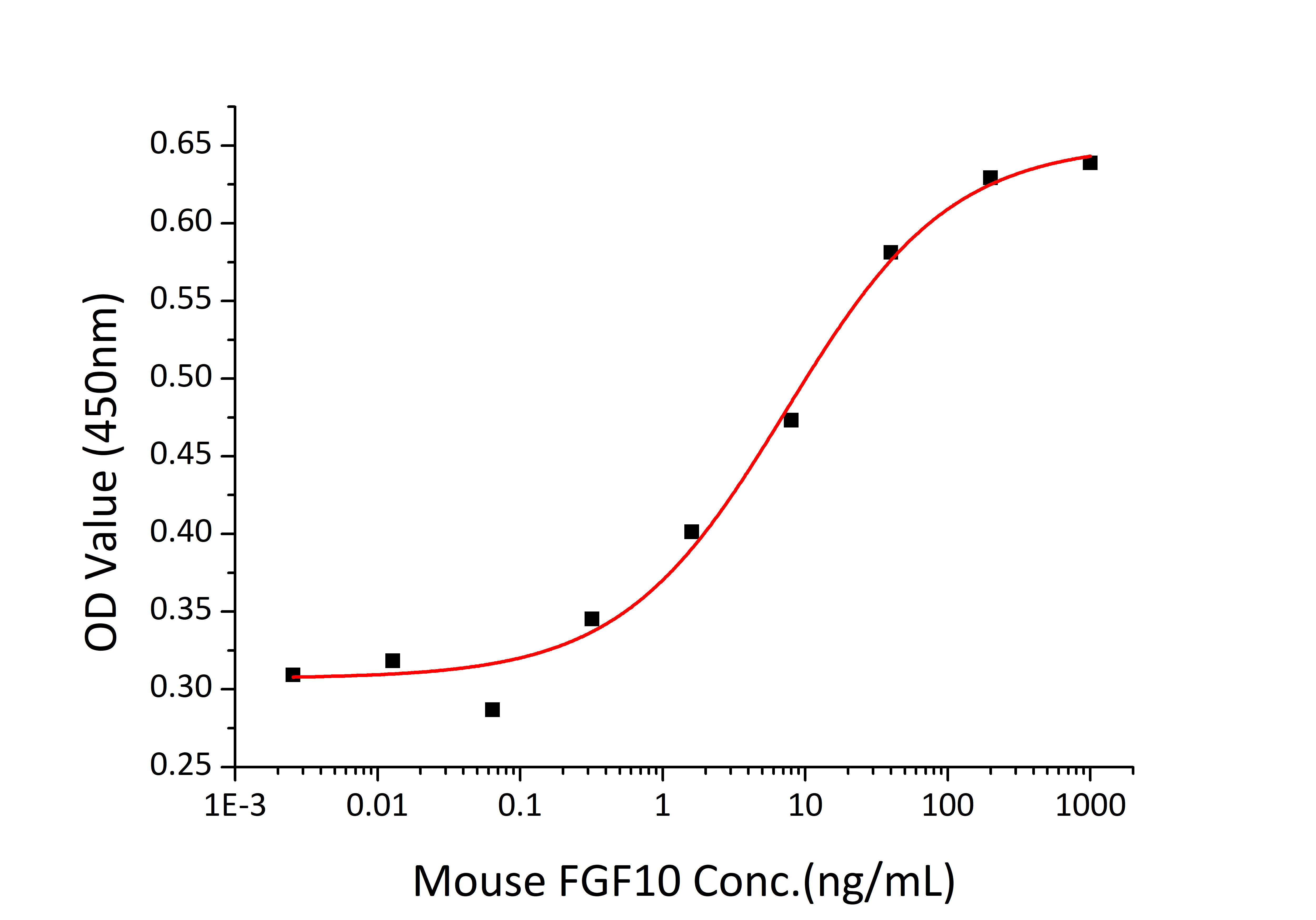Description
Recombinant Mouse FGF-10 Protein
The Recombinant Mouse FGF-10 Protein is a high-quality recombinant protein designed for murine biological research applications. This protein serves as an essential reagent in mouse model studies, comparative immunology research, and preclinical therapeutic evaluations, enabling scientists to investigate FGF-10 biology and its relevance to human disease mechanisms through translational research approaches.
This product (SKU: RPCB1866) is produced using E. coli and features a NO-Tag tag for convenient detection and purification. The protein exhibits a calculated molecular weight of 19.54 kDa with an observed molecular weight of 20-25 kDa under denaturing conditions, achieving ≥ 95 % as determined by SDS-PAGE.. Functional bioactivity has been validated through rigorous quality control assays, confirming its suitability for demanding research applications.
Key Features
| High Purity by Affinity Chromatography | |
| Mammalian & Bacterial Expression Systems | |
| High lot-to-lot consistency via strict QC |
| Product Name: | Recombinant Mouse FGF-10 Protein |
| SKU: | RPCB1866 |
| Size: | 10 μg , 20 μg , 50 μg , 100 μg |
| Reactivity: | Mouse |
| Synonyms: | Fibroblast growth factor 10, FGF-10, Keratinocyte growth factor 2, Fgf10 |
| Tag: | NO-Tag |
| Expression Host: | E. coli |
| Calculated MW: | 19.54 kDa |
| Observed MW: | 20-25 kDa |
| Gene ID: | 14165 |
| Protein Description: | High quality, high purity and low endotoxin recombinant Recombinant Mouse FGF-10 Protein (RPCB1866), tested reactivity in E. coli and has been validated in SDS-PAGE.100% guaranteed. |
| Endotoxin: | < 1 EU/μg of the protein by LAL method. |
| Purity: | ≥ 95 % as determined by SDS-PAGE. |
| Formulation: | Lyophilized from a 0.22 μm filtered solution of 20mMPB,800mMNaCl,pH7.4 |
| Bio-Activity: | Measured in a cell proliferation assay using 4MBr‑5 rhesus monkey epithelial cells. The ED 50 for this effect is 3.66-14.64 ng/mL, corresponding to a specific activity of 56.83×10 4 ~2.73×10 5 units/mg. |
| Reconstitution: | Centrifuge the vial before opening. Reconstitute to a concentration of 0.1-0.5 mg/mL in sterile distilled water. Avoid vortex or vigorously pipetting the protein. For long term storage, it is recommended to add a carrier protein or stablizer (e.g. 0.1% BSA, 5% HSA, 10% FBS or 5% Trehalose), and aliquot the reconstituted protein solution to minimize free-thaw cycles. |
| Storage: | Store at -20℃.Store the lyophilized protein at -20℃ to -80 ℃ up to 1 year from the date of receipt. After reconstitution, the protein solution is stable at -20℃ for 3 months, at 2-8℃ for up to 1 week. |
Fibroblast Growth Factor 10 (FGF 10) is an evolutionary conserved secreted growth factor mediating mostly mesenchymal to epithelial signaling. FGF 10 belongs to the FGF 7 subfamily and shares similar biochemical and amino acid sequences with its constituent members (FGF3, FGF 7 and FGF 22). As a paracrine FGF, FGF 10 elicits its biological responses by activating the fibroblast growth factor receptor 2b (FGF R 2b), is crucial for governing proximal distal outgrowth as well as patterning and acts upstream of the known apical ectodermal ridge (AER) marker FGF 8. FGF10 is also implicated in pancreatic cancer, and that overexpression of FGFR2b is associated with metastatic invasion.








